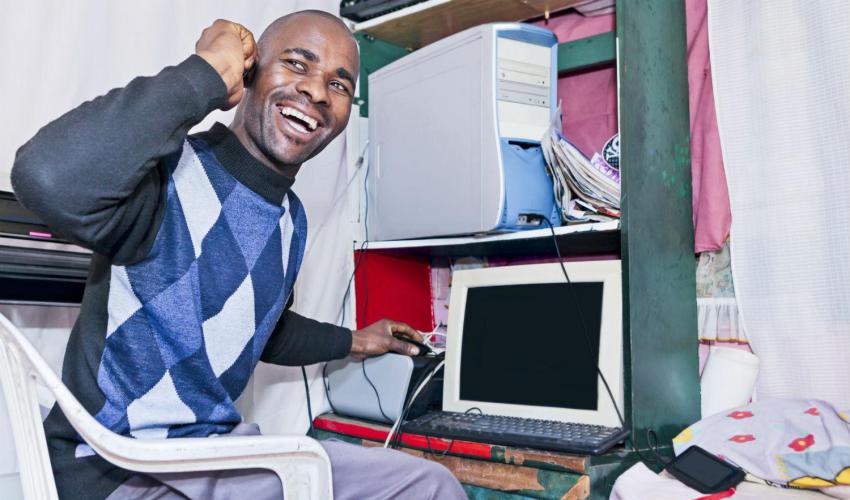Press Room
|
21/01/2015

Networks That Fish Money
FERNANDO VEGA REDONDO IS CONDUCTING A FIELD EXPERIMENT IN GHANA TO PROVE THAT ACCESS TO RICH SOCIAL NETWORKS CAN IMPROVE THE QUALITY OF BUSINESS IDEAS SUBMITTED TO A MICROFINANCE PROGRAM
An interesting field experiment undertaken by a research team led by Fernando Vega-Redondo (Department of Decision Sciences and IGIER) is taking place in Ghana. Keywords: microfinance, development, social networks, entrepreneurship. Objective: to evaluate empirically whether participation in wide social networks significantly improves the quality of entrepreneurial (business) proposals submitted to a microfinance program in a developing country.
Microfinance is an idea that has spread throughout the developing world and has substantially affected the way we think about economic development. It is largely agreed, however, that microfinance has not been successful in triggering sustained paths of development in most cases. Vega-Redondo describes such a limited effect of microfinance through a scissors metaphor: two blades are needed to cut, and availability of credit by itself is not enough. The second crucial “blade” is the ability to generate truly novel and economically profitable ideas, combined with the entrepreneurship needed to put these ideas into practice. This, he suggests, is often achieved through the rich interaction in wide and diverse social networks.
How can such social networks be introduced in the rural environments of developing countries that are typically small, isolated, and lack much of what we usually consider a good infrastructure? “Modern internet technology could potentially answer that question,” Vega-Redondo thinks. “Even remote places in Africa and Asia are attaining good wireless access to Internet at an astounding rate. This in turn is making social interaction on a large scale possible and, as a result, could have important economic potential”.
Vega-Redondo and his team have designed a random control trial in Ghana, in which Internet is accessed through a smartphone and a specifically programmed application allows users to post their (pre-)projects, exchange their views, and also coordinate and possibly come up with joint loan proposals. As usual, the testing of the hypothesis is conducted by dividing the population into treatment and control groups, with the former having access both to microfinance and the social-network application while the latter only participates in the microfinance program. An important feature is that, in this experiment, loans (of a relatively large magnitude) will only be given to projects that are truly novel, i.e. entrepreneurial.
Expectation is that projects from people with access to the social network application will be more innovative and entrepreneurial than the rest.
The experiment is carried out by a team consisting of researchers at Stanford University, in Siena, and in Stockholm. It includes as key partners the NGO Village Exchange Ghana (which runs the microfinance operation), Airtel (one of the main worldwide phone providers, which provides free internet coverage, hardware and software assistance), and Facebook (which contributes its expertise in designing social-network applications and processing the resulting data).
Barbara Orlando
Universita' Bocconi
Phone +39-02.5836.2330
Mobile +39-335.123.1716
E-mailbarbara.orlando@unibocconi.it
https://www.press.unibocconi.eu
Universita' Bocconi
Phone +39-02.5836.2330
Mobile +39-335.123.1716







